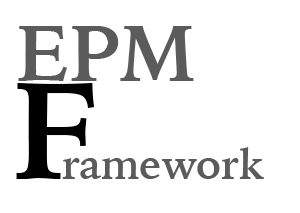Nets4Learning, una plataforma web para el diseño, entrenamiento y prueba de modelos de aprendizaje profundo. Esta herramienta tiene como objetivo abordar la creciente demanda de conocimientos y marcos para el desarrollo y uso de la Inteligencia Artificial. El software se ocupa de tres de las tareas más populares en el campo de la ciencia de datos, como la clasificación tabular, la clasificación de imágenes y la identificación de objetos. Visita Nets 4 Learning.
Recursos
Cometa
Cometa: Un exhaustivo archivo de datos con múltiples etiquetas, es una colección de conjuntos de datos con múltiples etiquetas, disponible en cometa.ujaen.es en diferentes formatos de archivos y particionados previamente siguiendo varias estrategias. Las docenas de conjuntos de datos disponibles se pueden utilizar con herramientas como MULAN, MEKA, KEEL, LibSVM y con los paquetes utiml, mldr y mldr.datasets R. También se proporciona una descripción detallada de cada conjunto de datos, que incluye atributos, etiquetas, métricas de las múltiples etiquetas y gráficos de relaciones de las etiquetas. El usuario puede ordenar fácilmente los conjuntos de datos de acuerdo con varias de estas métricas, eligiendo el más apropiado para su interés.
dmServer
SIMiDat dmServer es un software de minería de datos único basado en tecnología web para ejecutar un gran número de algoritmos de inteligencia computacional sin necesidad de instalar ningún software en su computadora.La web incorpora diferentes algoritmos para preprocesar y analizar datos de una manera fácil a través de una GUI. Visita dmServer.
KEEL
KEEL (Extracción del Conocimiento basada en el Aprendizaje Evolutivo) es una herramienta de software Java de código abierto (GPLv3) que se puede utilizar para un gran número de diferentes tareas de descubrimiento de datos de conocimiento. KEEL proporciona una GUI simple basada en el flujo de datos para diseñar experimentos con diferentes conjuntos de datos y algoritmos de inteligencia computacional (prestando especial atención a algoritmos evolutivos) para evaluar el comportamiento de los algoritmos. Permite realizar un análisis completo de las nuevas propuestas de inteligencia computacional en comparación con las existentes. Por otra parte, KEEL ha sido diseñado con un doble objetivo: la investigación y la educación. Visitar KEEL.
mldr: Análisis exploratorio de datos y manipulación de conjuntos de datos con múltiples etiquetas.
Análisis exploratorio de datos y manipulación de conjuntos de datos junto con una aplicación interactiva para facilitar su suso.
SDEFSR: Descubrimiento de subgrupos con sistemas evolutivos difusos en R
Implementación de sistemas evolutivos difusos para la tarea de minería de datos llamada "descubrimiento de subgrupos". También provee de una aplicación para hacer más fácil el análisis. Los algoritmos trabajan con conjuntos de datos provistos en formatos KEEL, ARFF, CSV y con objetos data.frame.
mldr.datasets: Repositorio definitivo R de conjunto de datos con múltiples etiquetas
Gran colección de conjuntos de datos con múltiples etiquetas junto con las funciones necesitadas para exportarlos a varios formatos, para hacer particiones y para obtener información bibliográfica.
ruta: Implementación de arquitecturas neuronales no supervisadas
Implementación de varias redes neuronales no supervisadas, desde la construcción de su arquitectura hasta su entrenamiento y evaluación.Las redes disponibles son auto-codificadores incluyendo sus variantes principales: dispersa, contractiva,eliminadora de ruido,robusta y variacional, como descrita en Charte et al. (2018) doi:10.1016/j.inffus.2017.12.007.
smartdata: Preprocesamiento de datos
Facilita las tareas de preprocesamiento de datos, provee un flujo de datos basado en un operador de tubería que facilita las operaciones de limpieza, transformación, sobremuestreo o selección de instancia/función.
predtoolsTS: Predicción de series de tiempo
Facilita la predicción de series de tiempo al automatizar este proceso utilizando cuatro funciones principales: prep(), modl(), pred() y postp(). Presenta diferentes métodos de preprocesamiento para homogeneizar la varianza y eliminar la tendencia y la estacionalidad. También tiene el potencial de reunir diferentes modelos predictivos para hacer comparativas. Características de los modelos ARIMA y Regresión de minería de datos (usando caret).
EPM Framework
Framework que permite ejecutar de manera sencilla algoritmos de minería de patrones emergente (EPM) el cual es un trabajo de minería de datos para describir un conjunto de datos usando aprendizaje supervisado. En este framework puedes ejecutar los algoritmos EPM mas importantes que existen en la bibliografía con el propósito de descubrir tendencias emergentes en datos con marcas de tiempo o diferencias interesantes entre múltiples variables y clases.. Acceso a este framework.







